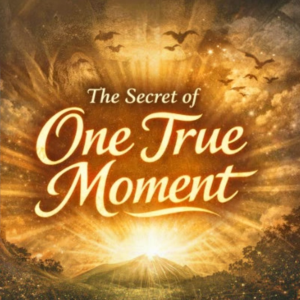Sacred Time: Dead Or Alive – Adar 8
Adar 8
Dead Or Alive?
After Purim, we prepare for Pesach by reading the Parshat Parah–the Torah portion that details the laws of the red heifer, which was burned so its ashes could be used to purify from the defilement of the dead. This was a necessary stage in the path to Pesach, since the Pesach offering could only be eaten in a state of ritual purity. Even though we no longer have a Beit Hamikdash, the laws of the offerings have eternal lessons to teach us.
Our sages taught that the operation of preparing the ashes of the parah adumah involved a paradox: even though they purified a person who was defiled by some degree of contact with the dead, they also defiled the person who picked them up for no reason. (Mesechet Yoma) Reb Nosson explains that the parah adumah indicates teshuvah, since its purpose was to repair the damage that had been caused by the sin of the golden calf. The sages phrased it very poignantly: “Let the mother (the heifer) come and clean up after her offspring (the calf).” (Bamidbar Rabbah) How does this dynamic, and its paradox, relate to our personal process of teshuvah? We return to G-d by focusing on our essential good point and believing that we are genuinely good and can still return to Him. Our good points are completely pure and untouched, no matter what we might have done. But the power of good points to uplift a person can only be properly engaged if that person is feeling down. Its ability to shake away depression and sadness is only for a person who isn’t filled with pride. If a person lacks humility, focusing on his good points will lead to arrogance and spiritual complacency.
When a person already feels good about himself, his focus should be on how much more he needs to fill his deeds, speech and thought with spiritual content. When he feels down—and he might even feel as though he entirely “defiled”—he needs to search for the good points, however miniscule they appear. By understanding that even one good point is eternal and worth living for, he is filled with joyful vitality and propelled to teshvuah.
“A Sacred Time” emails are sent twice-weekly and focus on finding inspiration and meaning throughout the Jewish calendar. To receive these in your inbox, click here.
- 0 comment






















